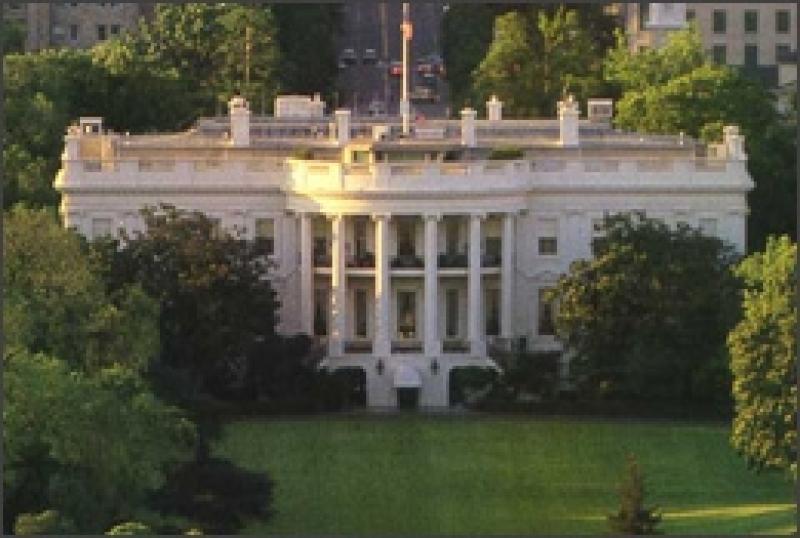FEDERAL PAY FREEZE SOUGHT
By: Stephen Barr and Martha M. Hamilton (The Washington Post)


Savor the moment.

February 17, 1993 -- President Clinton yesterday recommended freezing the pay of the civil service and the armed forces in an unexpected call for sacrifice by government workers already targeted for significant cost-cutting under the administration's economic plan.
Clinton proposed canceling next year's salary increase for government employees, limiting their pay increase for the next three years to the cost-of-living adjustment minus 1 percent, and delaying the start of a widely praised law designed to close the wage gap between civil service and private-sector workers.
Clinton's call for the across-the-board pay freeze, made during his State of the Union Message, was greeted by applause and scattered cheers from members of Congress.
The federal pay curb, which would affect approximately 17 percent of the area's wage earners, was one of a series of measures in the Clinton economic plan that could hit the Washington region hard. Changes in the tax code could reduce business at restaurants and some lobbying firms and increase the taxes of the region's relatively high proportion of high-income families.
The result may be to slow down an already less-than-robust economic recovery in the area, some analysts said.
The proposed cuts require congressional approval, and federal worker unions said they will oppose the president's pay proposals on Capitol Hill.
Rep. Steny H. Hoyer (D-Md.), a member of the House Appropriations subcommittee on general government and a longtime leader on federal workplace issues, praised Clinton's economic plan but suggested that the pay freeze would be modified or dropped by Congress.
"I will be working towards getting the revenue to replace that provision," Hoyer said.
Pentagon officials estimated that $18 billion would be saved by curbing military and civilian defense worker pay between 1994 and 1997. The Office of Management and Budget (OMB) calculated that about $8.3 billion in civil service salaries would be saved by 1997 under the proposed reductions.
Last week, Clinton signed executive orders requiring a reduction in administrative costs and overhead by 14 percent and the elimination of 100,000 federal jobs through attrition over the next four years. He estimated those cuts would save $9 billion over four years.
The pay freeze and other budget proposals were outlined in documents released by OMB. Efforts to elicit details on the plan for federal salaries were unsuccessful because OMB officials did not return telephone calls yesterday.
Union leaders, who supported Clinton during the campaign and looked forward to an executive branch run by Democrats, expressed disappointment with the proposed pay freeze.
Robert M. Tobias, president of the National Treasury Employees Union, called the proposed cuts "a poor way to reinvent government. It will end up dis-inventing government."
John N. Sturdivant, president of the American Federation of Government Employees, called Clinton's reductions "unacceptable. We're being asked to pay twice -- with increased taxes as U.S. citizens and as federal employees with the pay freeze."
Union leaders expressed particular concern that Clinton proposed a one-year delay in the crucial phase of a new pay system created by the Federal Employees Pay Comparability Act of 1990.
The law would overhaul the current General Schedule, which allocates pay for white-collar federal workers on a uniform scale, and replace it with a system in which a portion of a federal worker's annual raise is linked to local labor markets.
The new federal pay system was agreed upon after extensive negotiations involving the Bush administration, civil service advocates and Congress. It currently covers three high-cost areas -- San Francisco, Los Angeles and New York.
Beginning in 1994 and continuing for five years, the rest of the country would be phased in, using a formula based on the Employment Cost Index that gives federal workers extra wages to catch up with their public-sector counterparts.
Government salaries have lagged behind the private sector -- as much as 28 percent in 1989, for example -- because of past wage freezes or salary increases that failed to keep up with inflation.
Proponents expected that by providing federal workers with comparable pay, recruiting and retention would be improved, work force productivity increased and a better return on payroll dollars ensured.
Sturdivant and Tobias said yesterday they feared that Clinton's proposals, and budget constraints in general, might scuttle the move to pay comparability. The new pay system "was tough to sell to our members, but they realized it was fair," Tobias said. "But it can't be fair if it isn't there." Sturdivant said the new pay system was supposed to take the politics out of federal worker pay, but "this isn't reinventing government, this is business as usual."
Both union leaders faulted Clinton for not consulting with them, as he had promised during the campaign. "We haven't had any opportunity to make our case," Sturdivant said. Added Tobias, "We haven't been consulted. And now we've been shut out. So it's back to Congress."
Another proposal by Clinton that will have a particularly big impact on the Washington area is the plan to eliminate corporate tax deductions for lobbying expenses. Del. Eleanor Holmes Norton (D-D.C.) said she had recommended the move, but some lobbyists said the proposal could backfire -- hitting small businesses harder than major corporations, which can afford to continue lobbying even without the tax deduction.
"They're going to lobby anyway," said George Grier, a senior associate in the Greater Washington Research Group. "That's the way they do business."
"I think all this does is sound good to the public and make people feel good while leaving the folks who are supposed to be targeted by it standing tall," said Howard D. Marlowe of Marlowe & Associates, a lobbying firm. "I think the end result is really smoke and mirrors. The folks who are left standing straight and tall are the ones in power."
The Clinton budget proposal also would reduce tax deductions for business meals and entertainment, a proposal that could hurt an already weakened sector of the Washington area economy, according to restaurant and union officials. Reducing the deductibility of business meals from 80 percent to 50 percent would raise $16 billion over the next five years, according to budget estimates.
"It will hurt very much," said Roberto Donna, owner, manager and chef of Galileo, a popular spot for business lunches. "Our lunch business could be cut as much as 45 percent, dinner maybe 5 percent."
Ron Richardson, head of the local union that represents restaurant workers, said the tax change would cost restaurant workers jobs in the Washington area. Area jurisdictions could lose businesses and taxes, while federal tax revenue is unlikely to increase from the change, he said.
Clinton also proposed reducing federal aid earmarked for schools that have a large number of students whose parents are federal workers. If approved by Congress, the cuts would be particularly painful this year in some area school districts, coming on top of other cuts that already have been made, school officials said.
But similar proposals have been made in the past, only to be defeated by Congress, they noted. "Every president since Truman has tried" to reduce the assistance, called impact aid, said Joseph Romeo, coordinator of revenue for Fairfax County Public Schools.
In defending his proposals last night, Clinton noted that he had already cut staff at the White House and reduced spending in federal agencies. "I think it is clear to every American, including every member of Congress of both parties, that the confidence of the people who pay our bills in our institutions in Washington is not high. We must restore it," he said.
But just cutting back on government is not the complete answer, he said. "We have to rethink the whole way it works."
For his part, Clinton added, "I want to bring a new spirit of innovation into every government department."
Word of the pay freeze had filtered out to some workers yesterday afternoon. As workers left the Agriculture and Energy departments at the end of the day, they seemed resigned to the extra sacrifice the president intended to ask of them.
"What has to be done has to be done," said Cheryll Jones, 30, a secretary at the Agriculture Department. "If some of us have to take a cut, there is nothing we can do about it. If he has to cut the federal government, we should all be cut equally."
Russell Forte, 61, who works in the department's public affairs office, said he, too, was willing to contribute personally to deficit reduction, although he remains skeptical about Clinton's plan.
"If it works, I'll be happy to do it, but I don't think it will work," said Forte. "There have been hundreds of new taxes" and limits on deductions that have not done the job yet, he said.
Staff writers Stephanie Griffith, Maria E. Odum, Megan Rosenfeld, Howard Schneider and Kevin Sullivan contributed to this report.






Same Shit, Different Decade
trying to better balance a budget, as opposed to decimating the careers of so many to fund an unnecessary tax cut provision due to expire are not on the same level and the dishevel was not the mandate Elon was given, and trump it down a bit about mandates, Elon isn't really dating him, just using.
You mean identifying fraud ISN'T what is supposed to happen? Seems the left is more upset they were caught rather than upset it was happening in the first place.
seems to me Trump, if truly concerned about fraud, wouldn't have run as he is one. Also, I don't recall him doing anything about it when he was in office. And to be more specific, as we know fraud and abuse have occurred under every president regardless of party, what exactly are you referring to ? Cause i've read as where we bought the Taliban one hell of a lot of condoms, and to me the less reproducing Taliban, the better, no ?
And different Party. What's OK for Democrats to do is forbidden for Republicans to do.